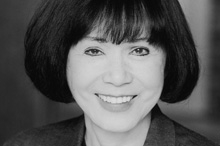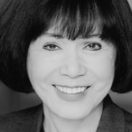
 Nancy Tom is being honored as a Champion of Change for her efforts as an AAPI Women leader.
Nancy Tom is being honored as a Champion of Change for her efforts as an AAPI Women leader.
For more than 50 years, I have stressed the importance of communication as a vital part of moving the Asian American and Pacific Islander community forward. In my world, the arts is one of the best ways to communicate—to truly convey who we are and what we do, and to link the generations together.
My work in the arts began by exposing Americans to Asian culture and works. But I soon realized that just as society was evolving, so too was the arts as a medium for heightening the awareness of Asians and Asian Americans. I founded the Center for Asian Arts and Media at Columbia College in Chicago so Asian Americans, the local art community, and the general public could better understand the historical and contemporary contributions by Asians and Asian Americans to art, history and culture. Thinking outside of the box, the Center presented not only visual art, but music, performance, lectures, film and more as part of its outreach efforts.
But we didn’t stop there. There was a distinct need to reach out across generations and cultures. So as the city of Chicago prepared to showcase Chicago at the 2010 World Expo in Shanghai, I knew we had to be part of it, and we needed to be innovative in how we did it. Thus was born Hip Hop ChicaGO: Connecting Cultures One Beat at a Time. 26 local multicultural artists blew audiences away in Shanghai celebrating the best of Chicago hip hop culture with a showcase of authentic beats, rhymes and moves that blended signature hip hop elements with American and international influences.
I also wanted to encourage women and girls of Asian descent, and of all cultures, to think critically about the issues they face, creatively expressing their heritage and identifying and discovering alternative resolutions to conflicts through programs that explored race, gender, class, sexuality, family structure and human rights. Named the “Woman Warrior Festival” after the best-selling book by award winning Chinese American author Maxine Hong Kingston, this program showcased women, empowering them to explore the tensions of growing up in conflicting cultures.
I also firmly believe that it is important for younger generations to remember their past – for the past informs the future. Therefore, my next project will look at the Chinese Exclusion Act through film, a visual exhibition, and frank discourse on this historical topic with ongoing implications – an especially timely project given the current discussion on immigration.
Nancy Tom is the founder of the Center for Asian Arts and Media at Columbia College Chicago.


